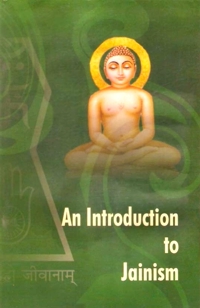The Jain philosophy believes in the existence of the 'soul'. Consciousness is an eternal characteristic of the soul.
There are two types of soul:
- Mundane Soul
- Liberated Soul
Mundane Soul is known as Baddha Jīva and Liberated Soul is known as Mukta Jīva. In the former state, the soul has to undergo births and rebirths, in the latter one, the soul is free from all kinds of bondages. In the mundane state, there is both evolution and devolution, where as in the liberated soul there prevails infinite knowledge, infinite bliss and infinite power.
The jīva in the mundane state extends itself in the body, equivalent to the size of the body. The souls of an elephant and a tiny insect are however equal. The body of an elephant is huge and that of an insect tiny. The difference in the size of their bodies does not affect the equality of souls, each soul being consisted of the same number of predeśas, which is definite.
Souls are infinite in number. There is no difference among them from the view point of consciousness. Infinite potentiality exists in each living being.
 Sadhvi Vishrut Vibha
Sadhvi Vishrut Vibha

